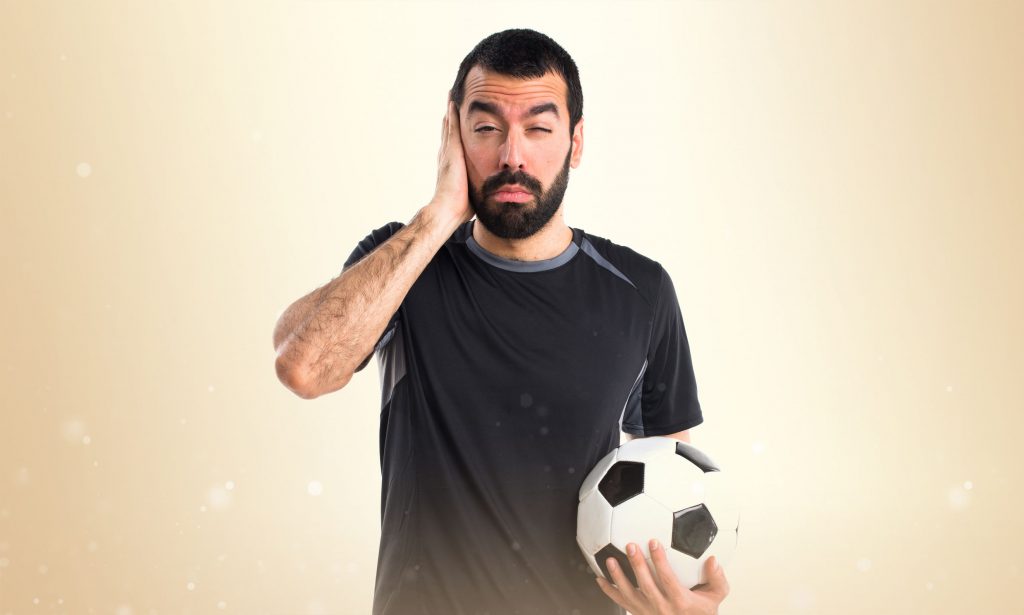
With the Rio games in full-swing, we should take a moment to discuss the dangers of concussions. Specifically, why so many athletes suffer from them and their impact on long term health.
Concussion Science
Concussions have been associated with several severe symptoms including:
- Chronic Traumatic Encephalopathy
- Migraines
- Anxiety
- Depression
- Problems with cognitive processing
- Memory loss
- Pain
- Slurred speech
- Sleeping problems
These symptoms can affect people’s day to day lives, and can be even more debilitating with repeated occurrences of concussions.
So what is the actual cause of these symptoms? The answer is complicated, but these symptoms are associated with a patient’s change in their brain’s white matter. White matter is responsible for the transfer of electrical information to different parts of your brain and to the rest of your body. Concussions can cause “dents” in your white matter, changing its flow of information and is why concussions are far more serious than most people realize. Furthermore, concussions do not always heal completely. A study conducted on several athletes showed that the structural changes in white matter from a concussion can last even after the concussion is presumed to be healed.
With traumatic brain injuries (TBIs), including concussions, the most important step is to start treatment for your injury as soon as possible. By receiving medical treatment early, doctors may be able to prevent further brain damage and start rehabilitation earlier if needed.
How Concussions Impact Athletes
So how do concussions impact athletes differently? You might be thinking to yourself, “Well, people just have a higher chance of getting a concussion if they play sports.” which is true. However, there is another risk for athletes when it comes to a concussion, because some athletes keep playing even after they’re injured.
For example, let’s look at the case of Brenda Kramer. Kramer is a talented athlete who suffered a concussion, but thought nothing of it at first. The important piece in the beginning of Kramer’s case is that she played the injury off as just a headache that she could sleep off. As she wrote “Initially, I felt completely fine,” we only later find out later just how wrong she was. Kramer recalls that later the following day that she experienced a panic attack. She wrote, “I began to sweat; I couldn’t sit in the classroom because I felt like I was going to throw up or pass out, or both.” Kramer then suffered a barrage of symptoms including sleeping troubles and intense depression. This, as she realized then, was due to the fact that she had three concussions within the span of ten years without treatment.
This was a very dangerous situation, as Kramer stated in her article “I pushed myself because that’s what I’ve been taught to do. As a competitive athlete all my life, I’ve learned how to push through injuries, playing both basketball and softball in high school and college.” Because Kramer “pushed through” her injuries, not only did she fail to get the help she needed, she may have made her injury worse.
If You Need Help, Get Help
It’s understandable why athletes ignore these injuries, to an extent. Many of them are under the pressures of coaches and peers, and there is a great importance placed on winning a game or being the best at a sport. However, no sport is worth the cost of losing your mental or physical health.
The message of this article is simple: if you feel that something is off, or that you are hurt when playing a sport, stop and get medical help immediately. Your body tells you that it is in pain for a reason, and injuries can only get worse if you ignore them. Pushing your body beyond its limits is like pushing a car beyond its limits. Eventually, you are going to break down.
Think of it like this, if you keep playing with an injury you might suffer from it for a very long time. However, if you take the time to stop and treat your injury, you will be more likely to keep playing the sport that you enjoy.
Discover more information on football related concussions.















